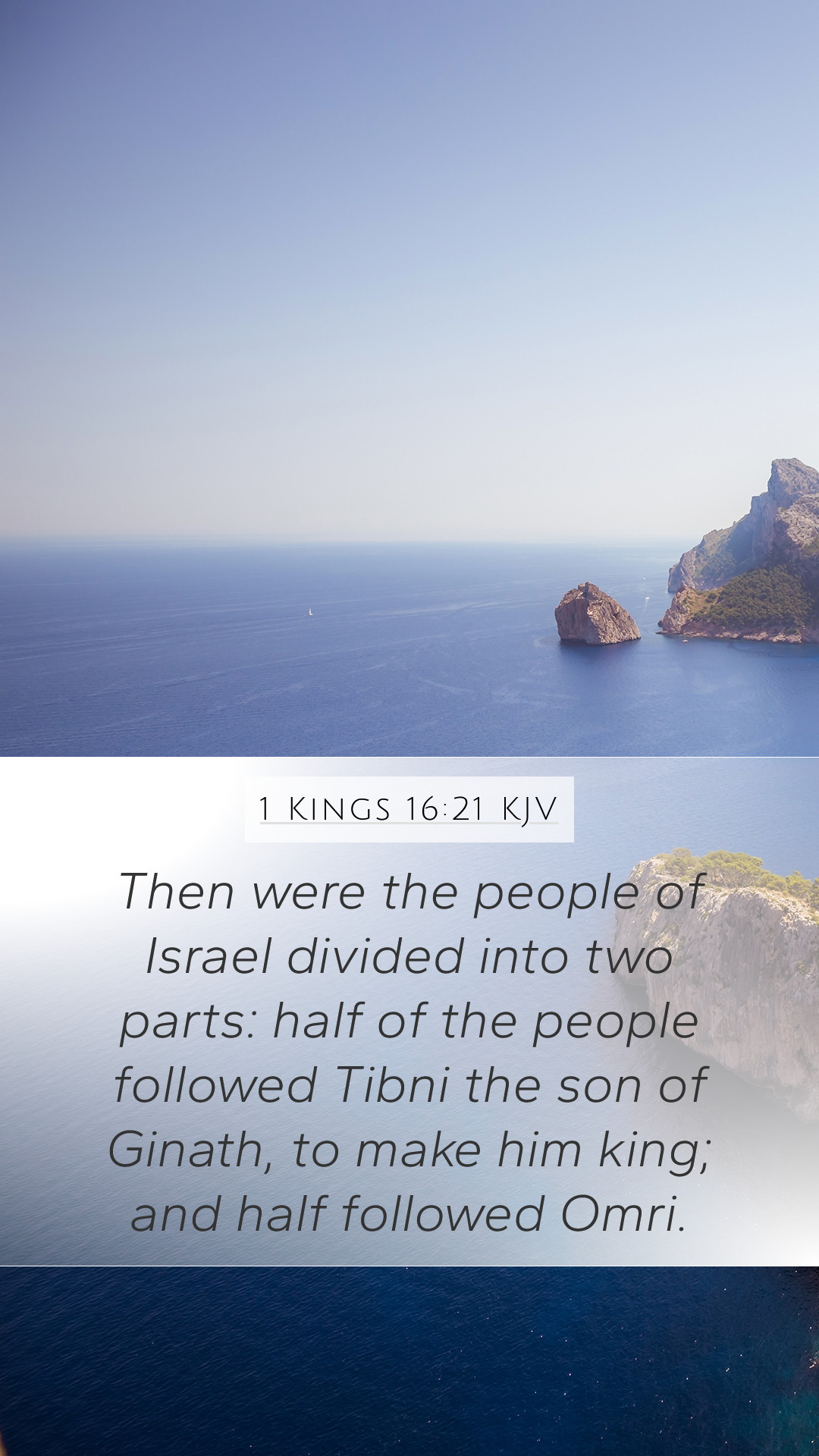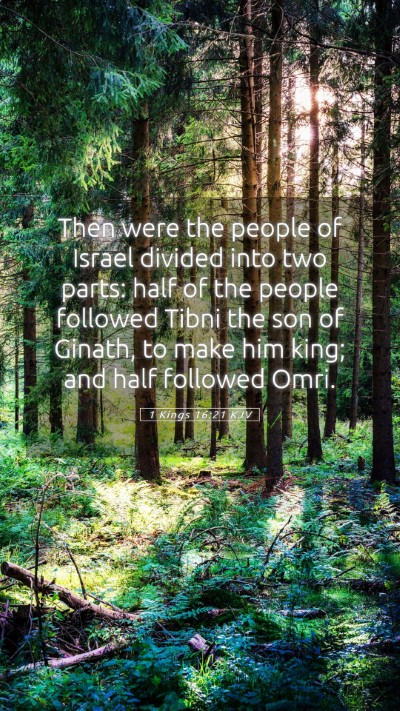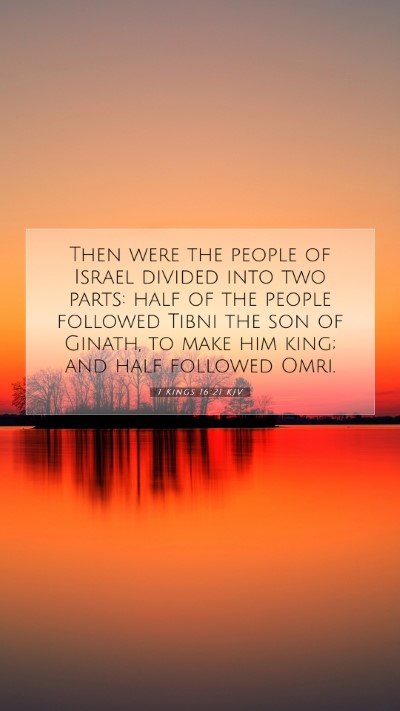Understanding 1 Kings 16:21: A Comprehensive Exegesis
In the study of biblical texts, uncovering the meanings and implications of specific verses is crucial for deepening one's faith and understanding. This exploration of 1 Kings 16:21 focuses on providing insights from various public domain commentaries, namely those of Matthew Henry, Albert Barnes, and Adam Clarke. Through this analysis, we aim to offer clarity on the meaning of this verse, its context, and its significance in the broader landscape of Scripture.
Verse Context
1 Kings 16:21 states:
"Then were the people of Israel divided into two parts: half of the people followed Tibni the son of Ginath, to make him king; and half followed Omri."
This verse occurs during a tumultuous period in Israel's history where various factions vied for power following the reign of King Asa. The division highlighted here is emblematic of broader themes within the books of Kings, particularly concerning leadership, loyalty, and national identity.
Commentary Insights
-
Matthew Henry's Commentary
Henry notes that the division of the people symbolizes a time of instability and conflict. The choice between Tibni and Omri serves as a reminder of the fragmented state of Israel, both politically and spiritually. This division compels readers to consider the consequence of forsaking divine guidance for earthly power.
-
Albert Barnes' Notes
Barnes elaborates on the significance of the names involved—Tibni and Omri. He emphasizes that positions of leadership require divine endorsement and not just popular support. Omri's emergence later as king is seen as a precursor to the eventual pitfalls of future kings, illustrating a consistent narrative of disobedience in Israel's leadership.
-
Adam Clarke's Commentary
Clarke provides a historical lens, contextualizing the political landscape of the time. He explains that this division was not merely a power struggle but also a reflection of the people's spiritual decline, as they leaned toward leaders promising strength rather than fidelity to God. His analysis invites readers to reflect on the moral implications of their following and the essence of true leadership according to biblical principles.
Significance of the Division
This divided allegiance among the Israelites represents a pivotal point in the biblical narrative, emphasizing the broader theme of biblical exegesis, which encourages modern readers to examine the ramifications of their own allegiances in terms of faith and ethics. The internal conflict parallels struggles within communities today, urging individuals to consider which values they uphold.
Applying 1 Kings 16:21 to Daily Life
As we seek Bible study insights from 1 Kings 16:21, several themes emerge that can be applied to contemporary life:
- Choice of Leaders: The analysis of leaders—both in ancient times and today—underscores the importance of selecting those who align with moral and virtuous principles.
- Division and Unity: This passage reminds us of the challenges that factions can present within communities. Working toward unity, despite differences, is vital in maintaining a supportive environment.
- Spiritual Fidelity: It encourages personal reflection on our faith and the leaders we choose to support in our own lives.
Reflection Questions
To further enhance your bible study experience, consider the following questions:
- What lessons can I draw from the division of Israel in 1 Kings 16:21?
- How can I apply the concept of leadership from this verse to my life?
- What does true loyalty to God look like in the context of modern-day challenges?
Cross References
This verse connects with a variety of other Scripture passages, providing deeper context:
- 1 Kings 12:16-20: The division of the kingdom under Rehoboam.
- 2 Chronicles 10: The account of Rehoboam's reign reflects the challenges of leadership and unity.
- 1 Kings 20:1-12: The consequences of internal strife and lack of faith.
Conclusion
In summary, 1 Kings 16:21 serves as a significant reminder of the complexities of leadership, loyalty, and faith in God. Through the insights provided by esteemed commentaries, readers are invited to reflect on their own choices and commitments in the face of worldly challenges. Whether participating in bible study groups or engaging in online bible study, the essence of Scripture analysis continues to resonate, encouraging faithful living among believers.


